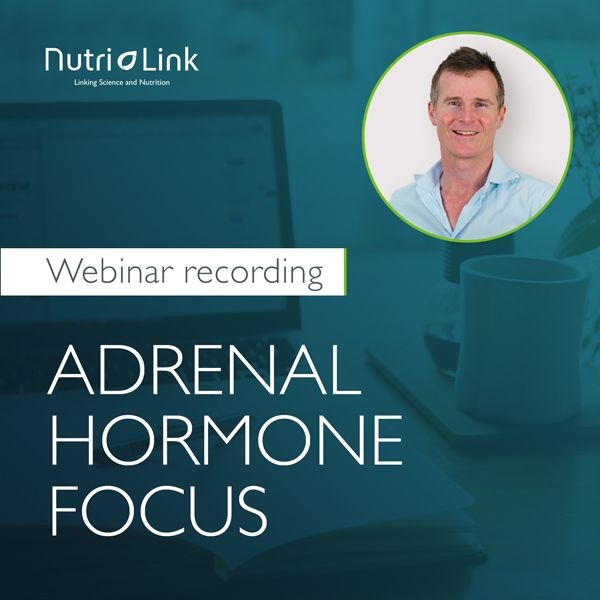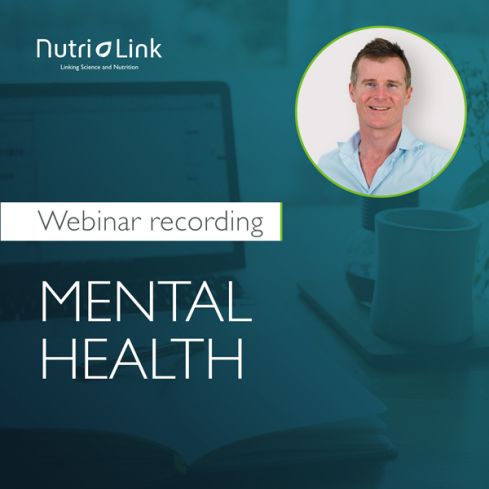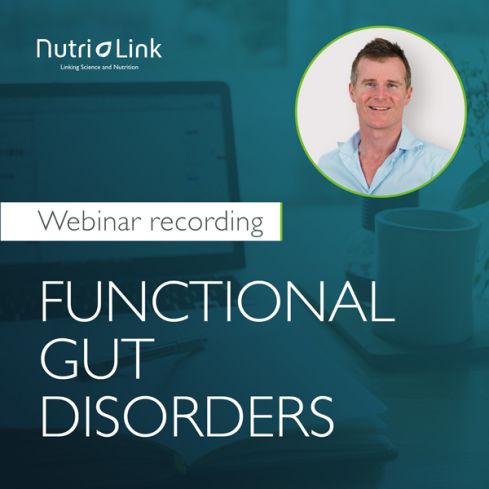WEBINAR: Adrenal Hormone Focus - Recorded
Title: Adrenal Hormone Focus Webinar
Presenter: Antony Haynes BA (Hons) RNT mBANT
Date: Wednesday 20th May 2020
Time: 12pm – 1pm BST
Price: £20+ VAT (50% credited back after live attendance)
WEBINAR ORDERING – please make sure you are logged into your account before attempting to purchase this webinar. Once logged in, you will be able to add this product to your basket and check out online.

order before 2pm for next working day delivery (UK Only)
Food supplements should not be used as a substitute for a balanced and varied diet.
Adrenal Hormone Focus Webinar
Cortisol is one of the single most important and powerful hormones in human physiology. Functional assessment of free and active cortisol does not exist in mainstream medicine which only recognises Cushing’s Disease at one end of the very narrow spectrum and Addison’s Disease at the other. A functional model appreciates a very wide spectrum which includes degrees of adrenal insufficiency and hyper cortisol states which are extremely common. Such imbalances play a significant role in how we feel on a day to day basis and affect the health and well-being of millions of people, particularly given the global events of the past few months.
In addition to the salivary cortisol testing, along with DHEA assessment, there has recently been added the Cortisol Awakening Response (CAR) which involves two further salivary samples.
Facilitating a healthy normal cortisol rhythm is something that we can offer for clients. It is very possible to stabilise a hyper cortisol state and to raise cortisol in someone with too low a level of cortisol with the appropriate targeted nutritional therapy.
Antony will highlight classic symptoms associated with adrenal hormone imbalances and clarify the distinction between signs and symptoms of low versus high cortisol; many symptoms can be the same for both high and low levels.
Antony will present specific time-tested clinical recommendations for the varying different levels of cortisol that may present themselves in the salivary test results.
During this presentation you will learn:
- About the functions of cortisol and DHEA.
- About the importance of assessing free and active cortisol levels over the day rather than a single blood test or 24 hour urine test.
- About the diverse symptoms associated with imbalanced cortisol levels and distinguish between high and low cortisol.
- About the GAS – General Adaptation Syndrome proposed by Dr Hans Selyé.
- About what specifically to recommend nutritionally for those with an elevated level of cortisol.
- About what specifically to recommend nutritionally for those with too low a level of cortisol.
- About the relevance and importance of too low a level of DHEA.
How do I register for a webinar?
Our free webinars are available to Practitioners and Students registered with Nutri-Link. You can create your free account here - Registration | Nutri-Link UK
Is there a cost to attend the webinars?
No, there is no cost for our upcoming webinars Practitioners and Students registered with Nutri-Link.
Can I book multiple webinars at once?
Yes, you can book multiple webinars at once. You will receive a reminder ahead of the webinars.
What happens after I complete my booking?
You will receive a confirmation booking & the booked webinar will appear on your Nutri-Link account.
How do I join the webinar on the day?
When you register you will receive a confirmation email (usually titled "You're registered for [Webinar Name]"), this is via email, the registration link can also be found on your Nutri-Link downloads.
To join a Microsoft Teams webinar after registering, click the "Click here to join the meeting" link in your confirmation email, or use the calendar event sent to your email.
Alternatively visit ‘My Account’ and ‘My Downloadable Products’ where you will also find the link to ‘Register Online’. Once registered by either method Teams will email you your link to join the live webinar.
What if I can’t attend after booking?
Not a problem, all webinars are recorded & the link is sent via email so you can watch at a time that is suitable for you.
Do they carry CPD hours?
Not live, however, you can submit the hour as self-directed learning.
Will I get a certificate of attendance?
Yes, you will receive a certificate of attendance which can be downloaded from your online account.
Will I receive the slides for the webinar?
Yes, they are uploaded to your online account post-webinar along with any other supporting materials.
Who can I contact if I have technical issues or questions?
You can either telephone: 0333 577 0404 or email [email protected]. Our offices are open 9:00 am to 5:00 pm, Monday to Friday.




